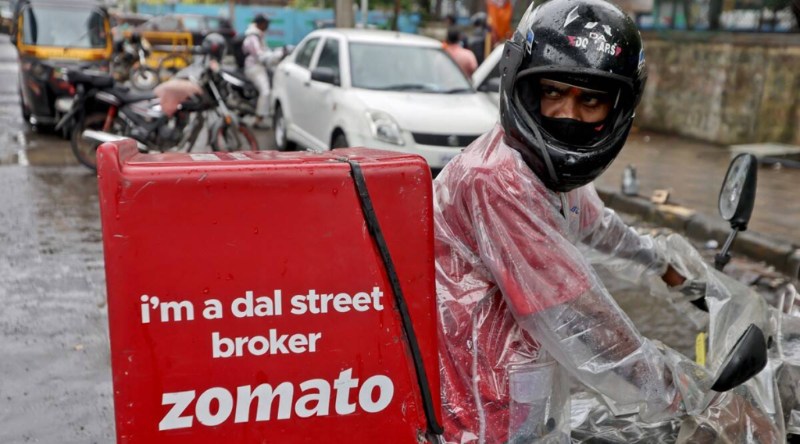
Zomato, the Indian food delivery giant, and a favorite app for many of us has filed to go public, with a three-day Initial Public Offering (IPO) scheduled for July 14 to raise approximately Rs 9,375. They will be the first high-profile tech startup in India to go public. And it deserves our attention.
Zomato as a brand has been very popular amongst the younger audience, so it’s not surprising if you were among those who contributed to the incredible record of 4,100 orders per minute (OPM) on New Year’s Eve. With the pandemic situation, Zomato has gained popularity among senior citizens as well as middle-aged people.
A Background Run
Deepinder Goyal and Pankaj Chaddah founded this well-known Gurgaon-based startup 12 years ago. It began as an online restaurant directory called ‘Foodiebay.’ After successfully operating in major Indian cities, this on-demand food delivery app expanded its operations internationally in 2014. Zomato received over 403 million orders with a gross order value of Rs 112,209 million during the fiscal year 2020, up from Rs 30.6 million in 2019 and Rs 13,341.4 million in 2018.
With 1.4 million restaurants listed and 3 million average monthly orders, Zomato is already shaping the future of online food delivery. Zomato brings you everything from the smallest eateries to the most upscale restaurants. It’s fantastic! So here’s the next question….
How does it earn profits?
Zomato’s revenue is not solely derived from food delivery; it has multiple revenue streams, indicating that its business model is diverse. Zomato charges restaurants a commission based on the number of orders they receive. While users pay a delivery fee, Zomato makes money by charging restaurants a commission on each delivery, split between the delivery partner and the company.
Apart from food orders, it also charges restaurants who pay to have their events or offers promoted and their overall banner, resulting in increased visibility and conversions from Zomato users. You know, similar to Google. Restaurant advertising and marketing accounts for a sizable portion of total revenue, accounting for 72 percent of total revenue.
It charges users an entry fee to attend Zomaland, where, in addition to food, they can see live musical performances and other acts. It also provides consulting services, such as advice on the demand for new eateries in a specific area. Consulting and food delivery services contribute 3% and 2%, respectively.

Zomato’s IPO valuation
Zomato reported a Rs 490 crore loss and a negative operating cash flow of more than Rs 1,000 crore. That is not reassuring. Revenue was down 23 percent to $283 million for the fiscal year that ended in March of this year, and losses were down 66 percent to $110 million, compared to the same period last year. This year has been hugely challenging for Zomato.
Delicious stats from SEBI filing:
In the three months since filing its prospectus with SEBI, Zomato has increased its offer size by Rs 1,500 crore and its value by Rs 15,000 crore.
According to the 420-page DRHP document,
- The total size of the IPO — Rs 9,375 crore.
- The primary issue has a face value of Rs 9,000 crore.
- The secondary issue is worth Rs 375 crore, according to early investor Info Edge.
- The price range for the offer is Rs 72-76 per equity share.
- The QIB portion will be 75% of the net offer, the retail portion will be 10% of the net offer, and the non-institutional portion will be no more than 15% of the net offer.
What’s in there for you?
Zomato’s price is nearly eight times its annual revenue. What are you talking about? So, do you want to invest or not? It is a personal decision to make. You should think about it if you understand the business and how they make money. Because it is extremely expensive, you must evaluate the value rationally. How do you think you compare? You can’t, of course. They don’t have any peers listed. And, except for Doordash, a US food delivery company, most overseas IPOs have been a flop.
It isn’t easy to make any assumptions about whether Zomato can justify its exorbitant valuation. There would be challenges in the market at all times, and there would never be a time when there would be no volatility. So you’ll need to dig a little deeper to determine the company’s intrinsic value and create your narrative.


